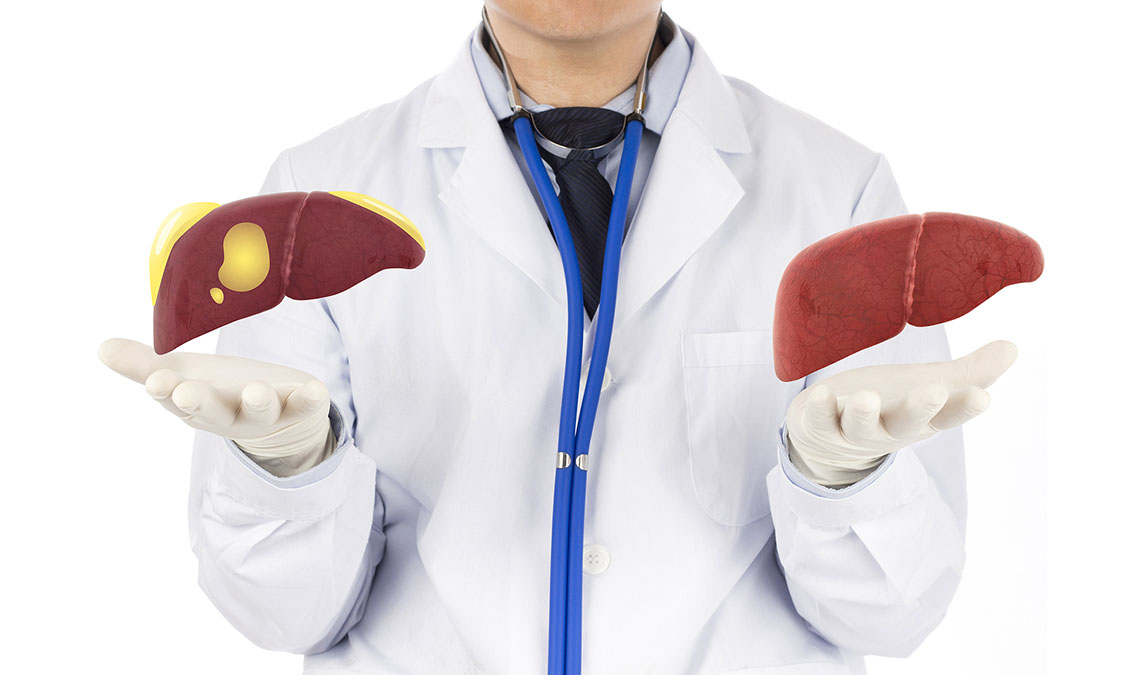 NAFLD is all about eating healthy and losing weight, right?
NAFLD is all about eating healthy and losing weight, right?
Wrong! Says a new study in Frontiers in Network Physiology.
It’s your sleep that caused NAFLD – and it’s your sleep that can correct it.
But not the amount of sleep.
NAFLD, often called the liver’s response to metabolic syndrome, results from fat buildup in the liver due to disruptions in metabolism.
While researchers already knew circadian rhythms (your body’s internal clock) impact metabolism, this study explored how poor sleep affects humans with NAFLD.
Researchers tracked the sleep of 35 NAFLD patients and compared it to 16 healthy individuals.
Instead of relying on self-reported sleep quality (which is often inaccurate), participants wore actigraph devices for four weeks.
These devices tracked their movements, providing detailed sleep data.
Here’s what they found:
-
• More Nighttime Awakenings: NAFLD patients woke up an average of 8.5 times per night, compared to 5.5 times for healthy individuals.
• Increased Awake Time: They spent 45.4 minutes awake after initially falling asleep, compared to 21.3 minutes for healthy peers.
• Lower Sleep Efficiency: NAFLD patients spent 86.5% of their time in bed asleep, while healthy individuals reached 92.8%.
• Shorter Sleep Duration: On average, NAFLD patients slept for six hours compared to six hours and 45 minutes in healthy individuals.
• Delayed Sleep Onset: They reported taking longer to fall asleep.
Even after a session of sleep hygiene education, the NAFLD group’s sleep patterns remained fragmented.
Animal studies have shown that disrupted circadian rhythms can lead to overeating, insulin resistance, inflammation, and metabolic dysfunction — all contributors to NAFLD. This study suggests similar processes occur in humans, highlighting the importance of sleep quality in managing liver health.
So to avoid NAFLD, it’s essential to get better sleep.

 Overcoming IBD
Overcoming IBD Multiple Sclerosis
Multiple Sclerosis Banishing Bronchitis
Banishing Bronchitis Gum Disease Gone
Gum Disease Gone Overcoming Onychomycosis
Overcoming Onychomycosis Neuropathy No More
Neuropathy No More The Prostate Protocol
The Prostate Protocol Brain Booster
Brain Booster
 Ironbound
Ironbound
 Solution for Shingles
Solution for Shingles
 The Bone Density Solution
The Bone Density Solution
 The Ultimate Healing Protocol
The Ultimate Healing Protocol
 The Parkinson's Protocol
The Parkinson's Protocol
 The Chronic Kidney Disease Solution
The Chronic Kidney Disease Solution
 Overthrowing Anxiety
Overthrowing Anxiety The Fatty Liver Solution
The Fatty Liver Solution The Hypothyroidism Solution
The Hypothyroidism Solution
 The End of Gout
The End of Gout The Blood Pressure Program
The Blood Pressure Program
 The Oxigized Cholesterol Strategy
The Oxigized Cholesterol Strategy
 Stop Snoring And Sleep Apnea Program
Stop Snoring And Sleep Apnea Program
 The Arthritis Strategy
The Arthritis Strategy The Vertigo & Dizziness Program
The Vertigo & Dizziness Program The 3-Step Diabetes Strategy
The 3-Step Diabetes Strategy Hemorrhoids Healing Protocol
Hemorrhoids Healing Protocol The Erectile Dysfunction Master
The Erectile Dysfunction Master Weight Loss Breeze
Weight Loss Breeze The IBS Program
The IBS Program The Insomnia Program
The Insomnia Program The Migraine and Headache Program
The Migraine and Headache Program The Neck Pain Solution
The Neck Pain Solution The Menopause Solution
The Menopause Solution The Ejaculation Master
The Ejaculation Master The TMJ Solution
The TMJ Solution The Acid Reflux Solution
The Acid Reflux Solution The Fibromyalgia Solution
The Fibromyalgia Solution The Psoriasis Strategy
The Psoriasis Strategy